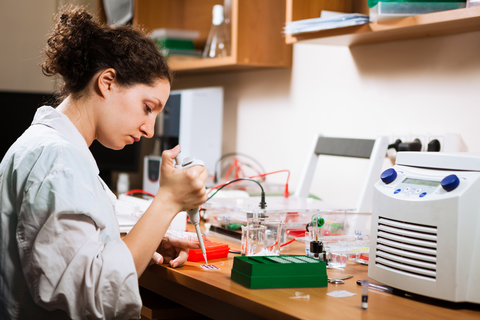Wastewater research programme expanded across Wales

A Welsh Government led programme to test wastewater for Covid-19, first piloted by Bangor University, has been expanded to cover all Welsh health boards and local authorities across forty eight sites.
Bangor University says the programme provides vital data on the prevalence of coronavirus in the community and was key to the early detection of the Omicron wave across Wales.
The process of identifying coronavirus in wastewater was initially developed by scientists from Bangor University, who have been working in partnership with the Welsh Government, Cardiff University, Dŵr Cymru Welsh Water and Hafren Dyfrdwy. The initial concept and processes are now used in work being undertaken across the UK.
Bangor University scientists began monitoring sewage at the Treborth Wastewater Treatment Works when the pandemic began.
Under the scheme, samples from wastewater are automatically taken every twenty minutes, to show Covid rates within communities.
All forty eight sites in Wales now have automated monitoring equipment installed to provide wastewater samples which scientists can test to give insights into the virus.
Health and Social Services Minister Eluned Morgan said “The wastewater data has helped us to understand how the pandemic has changed and allowed us to follow the Omicron wave though our communities.
“With the help of the scientists and water companies in Wales, we have increased the monitoring sites from 19 to 48 and introduced automatic sampling equipment providing even more detailed insights into wastewater testing compared with the methods we originally adopted.”
The BBC reports she said widespread monitoring for Covid would give authorities “a better sense of what genuinely is going on within our communities”, which would allow informed decisions to be made on potential responses.
She also said the technology could monitor whether people are taking drugs more in certain areas than others.
Chief Scientific Adviser for Health Rob Orford said “Wastewater monitoring has the potential to be representative of the true levels of COVID-19 in our communities, as it is less affected by changes to community testing policy and whether or not people get tested.
“We are keen to continue to explore how wastewater can play an important part of our future testing strategy as we begin to move from pandemic to endemic. Wastewater also has some exciting potential beyond COVID-19 and could be used to monitor the levels of many other viruses like influenza and anti-microbial resistance.”
Tony Harrington, Director of Environment at Dŵr Cymru Welsh Water, said he hopes they can continue to monitor more than just coronavirus and provide “early warning that something is going on in a catchment that they need to be alerted to”.
But Rob Orford said using it as an early warning system needs to be subject to “robust science and evaluation”.
He said there were many surveillance tools for monitoring communicable diseases, but “the application of waste water could be a lot broader, right from climate change through hydrology, medicines. It really has incredible potential utility that we need to evaluate”.
Professor David Jones , Bangor University’s School of Natural Sciences, who co-leads the development of the testing technology, said “COVID-19 has been a huge learning curve for virology, and our wastewater testing has been able to identify new variants of the virus in almost real-time, so we welcome its expansion across Wales. We know that the faster the data can be produced, the better informed public health officials can be in making important decisions about the measures needed.”
He said wastewater was “an incredible Pandora’s box which just needs to be opened” and could be used to indicate levels of drugs, and viruses and microplastics.
He said it could also monitor levels of serotonin and other compounds, which could help show how happy people are in different parts of Wales.
He said waste water “tells us everything about how society is operating” and could lead to even more exciting revelations in the future.
He added “For us, this is the tip of the iceberg. I think most of us work on the philosophy of flush and forget – we flush the toilet, we pull the chain, and we forget about what happens next.
“But for us, it’s a case of catch and discover really, because waste water tells no lies.”
He said testing for flu prevalence was already underway, “but that really is just the start of it”.








